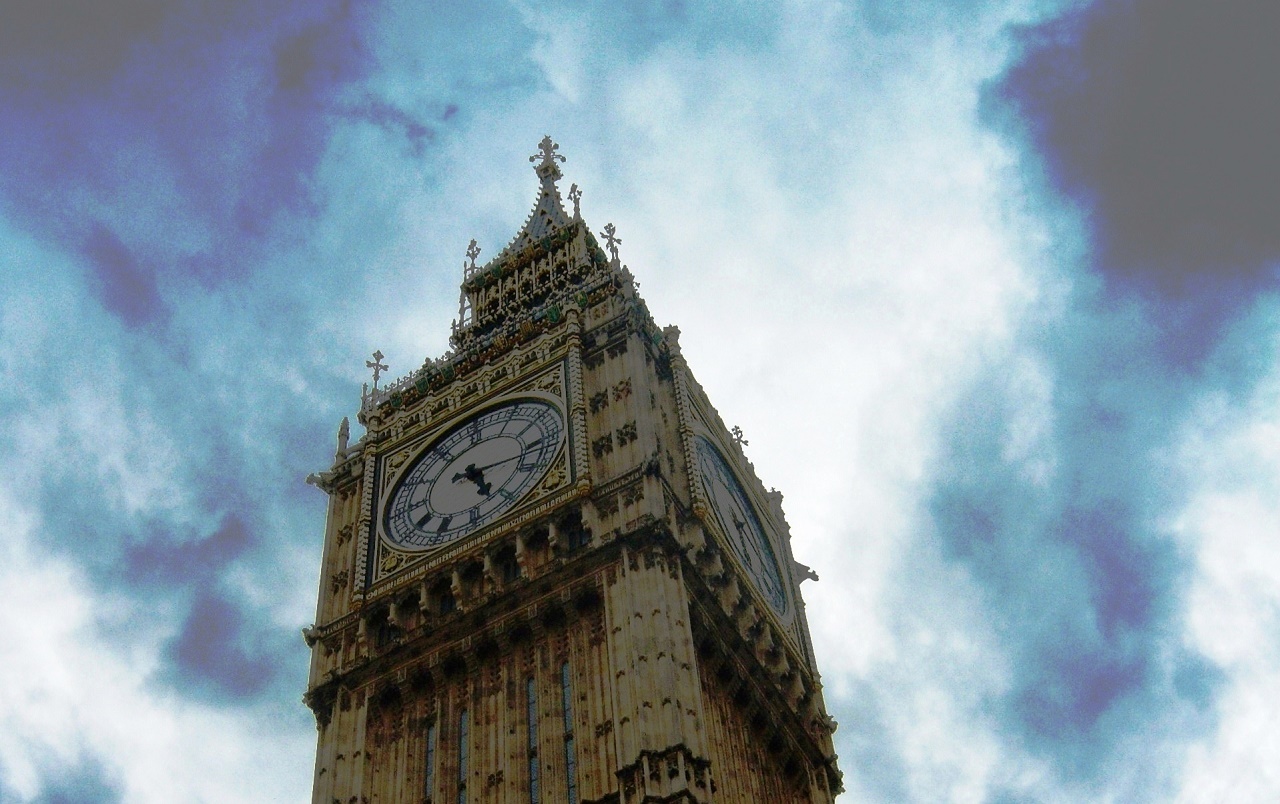Tim Legrand argues that Parliament offers ineffective scrutiny of the Executive’s anti-terrorism proscription orders, undermining the rule of law and eroding civil liberties.
The leader of the Green Party, Natalie Bennett, has sparked rather predictable outrage in the pages and online comments sections of the right-wing press by suggesting that the UK’s proscription laws should be dismantled. With the murders of Charlie Hebdo’s staff in Paris and new atrocities committed by ISIS in the Middle East becoming apparent on almost a daily basis, to ask, as Bennett has, whether we should allow such organisations to operate legally in the UK is, frankly, to think the unthinkable.
Though Bennett’s proposal has been met with derision, the timing could not be more appropriate: 2015 marks the 800th anniversary of the signing of the Magna Carta, which established the rule of law and many of the much-cherished freedoms and protections that we enjoy to this day. Crucially, the Charter abolished the monarch’s right to outlaw subjects by fiat. Prior to the signing of the Magna Carta, the monarch was able to declare his or her enemies to be Caput Lupinum; literally ‘a wolfish head’. Being designated as a ‘wolfish head’ deprived the unfortunate subject of all legal protections and, as with wolves, could be quite lawfully killed by anyone in the kingdom so murderously inclined. The Magna Carta put an end to this, and many other, arbitrary monarchial powers by stipulating in an oft-quoted clause:
No free man shall be taken or imprisoned, or dispossessed or outlawed or exiled or in any way ruined, nor will we go or send against him except by the lawful judgement of his peers or by the law of the land
Yet although this brought arbitrary proscription by the monarch to an end, it did nothing to prevent Parliament retaining the privilege to outlaw enemies of the state. For example, in an effort to suppress the Jacobite uprising in Scotland, in 1746 Parliament passed The Act of Proscription. This legislation banned the wearing of kilts or highland colours and moreover, to ensure that ‘rebellious principles were not taught in schools’, required all school teachers to ‘give evidence of their good affection to his Majesty’s person and government’. The conflict in Northern Ireland saw the introduction of proscription powers in 1887 to target Irish republican groups, again in 1973 and then, after a extensive review by Lord Lloyd in the late 1990s, the consolidation of all anti-terrorism legislation – to include the emerging ‘international terrorism’ – under the Terrorism Act 2000 (TA 2000). Under this legislation, today there are 65 ‘international terrorist organisations’ and 14 Northern Irish groups proscribed in the UK.
Broadly speaking, there are three reasons why the government considers proscription powers to be critical in the fight against terrorism, articulated by Charles Clarke in 2000. The first is its deterrent: proscription is regarded as a means to dissuade low-level supporters from becoming further involved in the group. The second is operational: proscription is one of a suite of measures intended to interrupt terrorist organisations’ ability to recruit, raise funds and promulgate their (illegitimate) ideology. The third is symbolic: proscription is meant to signal Government and society’s rejection of the group’s ‘claim to legitimacy’, as Clarke put it.
The ramifications of proscription are severe. First, the government may immediately seize the assets of the organisation. For individuals, it becomes a criminal offence -punishable by up to ten years imprisonment and/or a fine- to join, support, recruit for, or arrange meetings for the proscribed organisation. It is further illegal to display or wear symbols in support of the group, punishable by up to 6 months in prison. Should members of a proscribed organisation think they have been unfairly banned, they may appeal to the very person who banned them – the Home Secretary – in writing and, if the Home Secretary rejects the application, thereafter the group may appeal to the Proscribed Organisations Appeals Commission and, ultimately, the Court of Appeal.
The thrust of Natalie Bennett’s argument, and the policy position of the Green Party, is that the government should focus on prosecuting people for what they do, rather than what they think. Here’s what the Green Party manifesto says:
It should not be a crime simply to belong to an organisation or have sympathy with its aims, though it should be a crime to aid and abet criminal acts or deliberately fund such acts.
Setting aside the homework error that merely having ‘sympathy’ for the aims of banned organisations is in itself not a crime, the Greens’ contention that membership itself of a terrorist organisation should be legal sets them firmly at odds with the other parties. Since the introduction of the TA 2000, the successive New Labour and Coalition governments have shown no appetite for reversing the extraordinary anti-terrorism powers it grants to policing and security agencies. Indeed, in the aftermath of the recent attacks in Paris and the murder of British soldier Lee Rigby in 2013, it is unthinkable for the major parties to show any hint of weakness in tackling terrorism.
Few dispute that proscription is a heavy power. It steps firmly on freedoms of association and political expression; it transgresses a long-standing common law principle that people should only be punished only for the criminal acts they have committed, rather than their status (i.e. being a member of a banned group); and, unlike Australia’s proscription laws, UK bans have no expiry date. Perhaps of even greater concern, the trend amongst western governments has been to broaden and extend the state’s capacity to proscribe. In the Australian state of Queensland, the Liberal government used anti-terrorism proscription powers as a template for laws outlawing membership of ‘vicious lawless associations’, though the real policy intent was to rid the state of so-called ‘bikie’ (motorcycle) gangs . The legislation has introduced mandatory prison sentences of up between 15 and 25 years (in addition to the sentence for the original offence) for crimes committed by gang members.
Meanwhile, in the UK, Home Secretary Theresa May has announced she is considering ‘new banning orders for extremist groups that fall short of the legal threshold for terrorist proscription’.
Such pronouncements give cause for concern. Looking at some of the objections to proscription raised during Parliamentary debates, as Dr Lee Jarvis and myself have done previously here and here, reveals significant weaknesses in Parliament’s oversight of the Home Secretary’s exceptional powers to outlaw organisations that have earned her opprobrium.
Let’s first consider the Home Secretary’s role in the proscription process. It is already remarkably easy for the Home Secretary to determine which groups meet the threshold for proscription and lay a proscription order. Under the powers granted by the TA 2000, the Home Secretary can initiate a proscription for any organisation if she believes that it participates in, promotes or prepares for terrorist activities, or is ‘otherwise concerned in terrorism’. There is a range of ‘discretionary criteria’ that she may also consider, but in any case there is no oversight of her decision-making process, nor scrutiny of the veracity of information used: in short, the proscription process is initiated solely at the Home Secretary’s fiat.
Given the ease with which the Home Secretary may lay a proscription order, we might expect Parliament to have some heavy-duty safeguards in place to ensure that organisations are not banned by the caprice of one individual. Yet it is not so. The conditions under which Parliament exercises scrutiny are egregious and ineffective for three reasons. First, the Home Secretary’s proscription orders laid before Parliament cannot be amended and there is no limit on how many organisations can be placed on one order. Parliament may only accept or reject an order in its entirety. MPs are unable to resist the inclusion of specific organisations without resisting them all. Back in 2001, the first proscription order laid before Parliament contained an astonishing 21 organisations, leading Lord McNally to describe the process as ‘discredited’ and argue: “By any standard of natural justice, that does not make sense. It means that the good, the bad and the ugly are put together”.
Second, the information provided to Parliament explaining the rationale for an organisation’s proscription is often just a few sentences. The privileged intelligence or analysis available to the Home Secretary is withheld from Parliament, leading MPs to wonder why they are voting to ban an organisation. In 2005, Alan Simpson argued:
“When we put names on a list of proscribed organisations, it seems reasonable to ask what evidence we have of the involvement of any of them in current actions that have threatened the security of the United Kingdom. To be unable to get an answer to that is deeply worrying in the democratic process”.
Finally, Parliament does not always always receive advance warning of a proscription order. Indeed, when the Nigerian organisation Ansaru, which was thought to be responsible for the murders of British and Italian engineers in 2012, was added to the list of proscribed organisations, Keith Vaz commented “Many of us, myself included, probably discovered this organisation only when we knew that a proscription order was going to be issued on the Floor of the House today”.
These procedural weaknesses contribute to significant doubts over whether Parliament is given either sufficient opportunity or information to ever properly exercise its scrutiny over proscription orders. This is perhaps why, since the introduction the TA 2000, Parliament has never resisted a Home Secretary’s proscription order.
The poverty of Parliamentary oversight in these matters adds up to something worse than weak scrutiny: the appearance of a parliament in consensus with the executive, while in reality being in thrall to the Home Secretary’s fiat. The dominance of the Home Secretary over the proscription process led the former Conservative minister Douglas Hogg to describe proscription orders as ‘draconian’ and argue that “British citizens are made the subject of the criminal law and their rights to support political organisations are constrained by what is very largely an Executive action”.
In summary, Natalie Bennett might have more support than she might think: for more than ten years MPs from across the political spectrum have raised concerns about the probity of the proscription process. Now is certainly the time to interrogate these concerns and reflect on the possibility that, 800 years after the Magna Carta deprived the monarch powers of powers of arbitrary outlawry, the Home Secretary has acquired the same powers and something even better: a democratic rubber stamp.
Dr Tim Legrand is a lecturer at the National Security College at the Australian National University.





